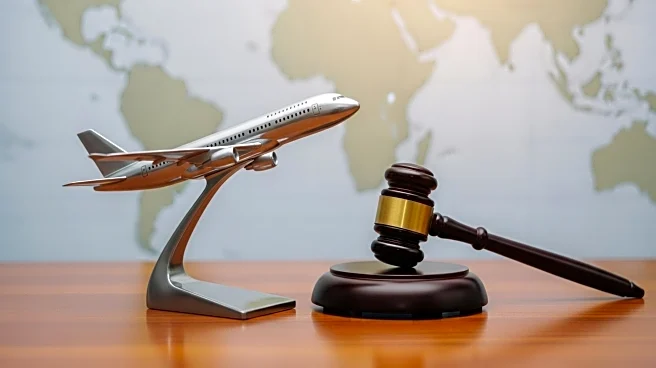What's Happening?
An Israeli family stranded in the United States after the October 7, 2023, attacks has lost a lawsuit against Air Canada. The family sought NIS 70,000 in compensation for a canceled flight back to Israel. The Jerusalem Small Claims Court dismissed the case, ordering the family to pay approximately NIS 3,000 in legal fees. The court found that the flight cancellation was due to the Iron Swords War, a situation classified as 'force majeure.' Air Canada argued that the plaintiffs did not request assistance at the time of the cancellation. The court noted that the family chose to remain in the U.S. voluntarily, staying with relatives and engaging in remote work and educational activities. The court criticized the lawsuit's framing, stating it unfairly suggested Air Canada abandoned passengers for business reasons during a crisis.
Why It's Important?
This ruling underscores the legal complexities airlines face when flights are canceled due to unforeseen events like wars. It highlights the challenges passengers encounter in seeking compensation under such circumstances. The decision may set a precedent for similar cases, affecting how airlines handle cancellations and customer claims during crises. It also emphasizes the importance of understanding 'force majeure' clauses in travel contracts, which can limit liability for airlines. The outcome may influence future legal strategies for passengers and airlines alike, impacting consumer rights and airline policies.
What's Next?
The ruling may prompt airlines to review their policies regarding cancellations due to extraordinary circumstances. Passengers might become more cautious about travel insurance and understanding contract terms. Legal experts may analyze this case to advise clients on similar disputes. Airlines could face increased scrutiny over their crisis management strategies, potentially leading to policy adjustments to better support affected passengers. The case may also influence how courts interpret 'force majeure' in travel-related disputes, affecting future litigation outcomes.
Beyond the Headlines
The case highlights ethical considerations in balancing business interests with passenger welfare during crises. It raises questions about the responsibilities of airlines in ensuring passenger safety and support. The ruling may influence public perception of airline accountability, affecting consumer trust and brand reputation. It also reflects broader societal issues regarding travel disruptions in conflict zones, prompting discussions on international travel policies and crisis management.










